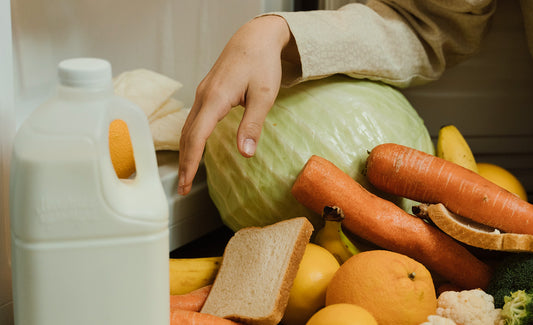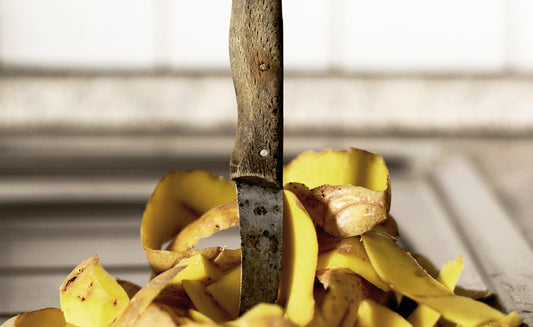Hey there fellow foodies! Did you know that our culinary adventures come with a not-so-tasty side dish? In this article, we're diving deep into the world of food waste and uncovering its sneaky environmental impact. Get ready to be amazed (and maybe a little appalled) by the numbers and facts we have in store for you…
Mountains of Waste
When it comes to food waste, the numbers are pretty staggering. According to the Food and Agriculture Organization (FAO), about 1.3 billion tonnes of food, roughly one-third of global production, goes to waste each year. Picture this: it's like dumping 27,000 Titanics worth of food into landfills annually. Now that's a Titanic-sized problem we just couldn't ignore!
Perfectly Imperfect Produce
Ah, the misunderstood beauty of "ugly" fruits and vegetables! In Australia, around 7.3 million tonnes of food are wasted annually, a substantial proportion being perfectly edible produce that doesn't meet cosmetic standards. These quirky characters are rejected due to their unconventional shapes, sizes or blemishes. Body positivity applies to our produce as well as ourselves, after all its what on the inside (in this case nutrition and flavour) that counts. So, let's shift our mindset, and savor the deliciousness of all fruits and vegetables, regardless of their appearance to create a tangible impact.
Carbon Footprint
Food waste contributes significantly to greenhouse gas emissions. As discarded food decomposes in landfills, it releases methane, a potent greenhouse gas that traps heat in the atmosphere. Brace yourself for this eye-opener: food waste is responsible for approximately 8% of global greenhouse gas emissions. To put it into perspective, this is equivalent to the emissions from nearly 4 billion passenger cars driven for a year.
Land and Water Woes
For just a moment think about the vast amount of land, water, and resources it takes to produce food globally. Shockingly, around 28% of that space is completely wasted, growing food that goes straight to landfill. To put that into perspective if food waste farmland was a country, it would be larger than China! This wasteful practice contributes to deforestation, habitat destruction, and soil degradation. Not to mention the colossal waste of water - estimated to be around 250 km³ annually. Water waste is a particularly serious issue here in Australia, with many arid regions and frequent droughts.
Biodiversity Blues
When we waste food, we're not just trashing tastiness; it's also a biodiversity bummer.
As we deplete land and water resources through wasteful practices, ecosystems suffer a devastating blow. Habitats vanish, species dwindle, and the delicate balance of nature teeters on the edge. Food waste isn't just about squandering food.
Oh, the tangled web we weave with food waste; the mountains of waste, the carbon footprint, the land and water extravagance, and the impact on mother nature! It’s not all doom and gloom though - by taking small steps together to reduce food waste, we can flip this fiasco into a foodie revolution.
Here at Damaged Goods Distilling Co., that’s exactly what we do. We take other foodie businesses unwanted produce and turn it into delicious world class spirits. (after all, we can’t really call it waste anymore when we’re putting it to good use). So let's join forces, make conscientious choices, and flip the script on food waste. Together, we can craft a deliciously sustainable world that leaves a lip-smacking legacy for generations to come!
Want to help save the planet with our superior sips? Click here to shop the goods.








